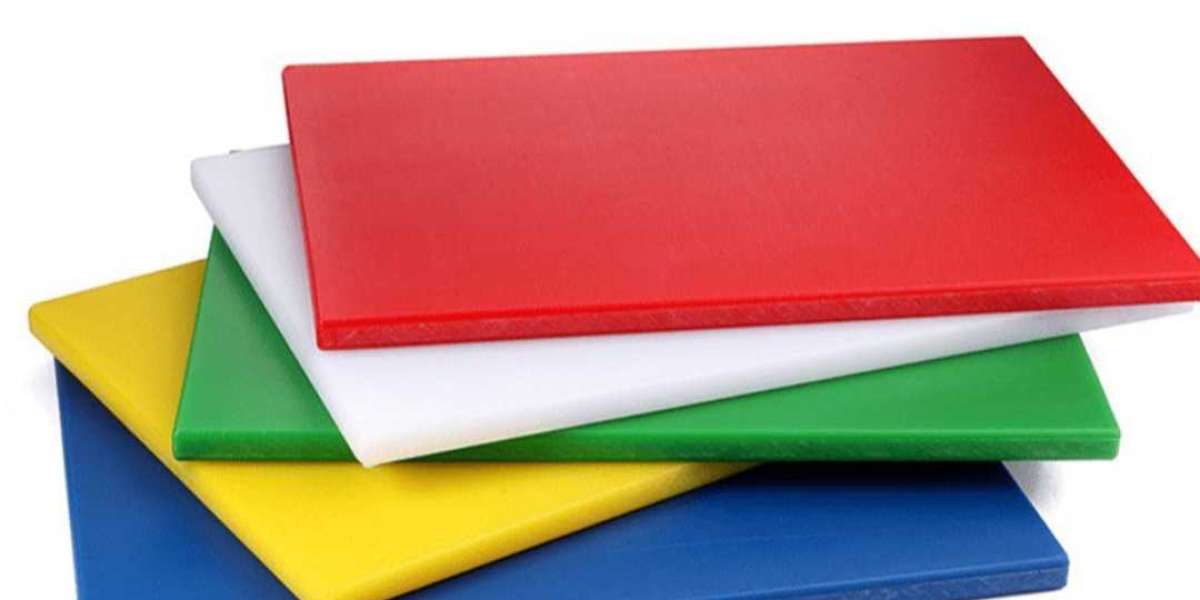High-Density Polyethylene (HDPE) sheets, often referred to as HDPE Sheets plastic, are a versatile thermoplastic material widely used in various industries. Renowned for their robustness and durability, these sheets are manufactured from petroleum and boast a high strength-to-density ratio, making them suitable for a multitude of applications. The properties that define HDPE sheets include their remarkable chemical resistance, moisture impermeability, and ease of processing, which all contribute to their growing popularity. Whether utilized in construction, agriculture, or manufacturing, hdpe plastic sheets have proven to be an indispensable resource, providing innovative solutions where traditional materials may fall short.
As industries increasingly prioritize sustainability, HDPE sheets have gained attention for their environmental credentials. Made from recyclable materials, HDPE can be repurposed at the end of its lifespan, thus playing a critical role in reducing plastic waste. The material's exceptional performance characteristics, combined with its eco-friendly attributes, have led to its widespread acceptance across various sectors. In this Mahira Polyglobal LLP, we will delve into the properties, applications, and sustainability aspects of plastic HDPE sheets, highlighting why they are a preferred choice in many scenarios.
Outstanding Properties of HDPE Sheets
One of the key features that set hdpe plastic sheets apart is their outstanding mechanical properties. These sheets exhibit excellent impact resistance, which means they can withstand physical stress without cracking or breaking. This is particularly beneficial in applications that involve heavy loading or potential impacts. Additionally, HDPE sheets are lightweight, making them easy to transport and install, which further enhances their usability in a wide range of contexts.
Furthermore, plastic HDPE sheets have impressive chemical resistance. They can endure exposure to various chemicals, including acids and alkalis, without suffering structural degradation. This quality is particularly advantageous in industrial settings, where chemical spills can occur. Additionally, HDPE sheets demonstrate excellent UV resistance, allowing them to maintain structural integrity and appearance even under prolonged exposure to sunlight, making them ideal for outdoor applications. Their low moisture absorption rate prevents the growth of mold and mildew, ensuring longevity and reduced maintenance needs—a combination of factors that underscores the value of HDPE sheets across industries.
Versatile Applications of HDPE Sheets
The versatility of HDPE sheets is evident in the diverse applications they serve. In construction, these sheets are commonly used for moisture barriers, geomembranes, and vapor barriers to prevent water infiltration and soil contamination. The durability of HDPE makes it a preferred choice for landfill liners, where it acts as a barrier against toxic leachate. Beyond construction, hdpe plastic sheets play a significant role in the agricultural sector. They are employed as liners in irrigation ponds, ground covers, and silage coverings, providing reliable moisture retention and weed suppression.
In the manufacturing industry, Plastic HDPE sheetsare used to produce a variety of items, including storage tanks, containers, and pallets. Their lightweight and durable nature promotes efficiency in operations, making them suitable for applications where weight reduction is key, such as in the aerospace and automotive sectors. The growing trend towards eco-friendly materials has also driven the adoption of HDPE sheets in packaging. Recyclable and strong, these sheets are often favored for creating products that align with sustainable practices.
Environmental Impact and Sustainability
Highlighting the environmental benefits of HDPE sheets further cements their place in the sustainable materials conversation. As part of a circular economy, HDPE can be recycled into new products, significantly reducing the amount of plastic that ends up in landfills. The recycling process for hdpe plastic sheets is relatively straightforward—old sheets are collected, cleaned, and reprocessed into new sheets or other items. Thus, they are integral to efforts aimed at reducing plastic waste.
Moreover, the production of HDPE sheets also has a reduced environmental footprint compared to other plastic materials. The manufacturing process typically consumes less energy and generates lower emissions, making HDPE a more sustainable choice in terms of environmental impact. This consideration resonates strongly with consumers and businesses alike as they seek materials that contribute positively to climate goals and sustainable practice initiatives. Consequently, the relevance of HDPE sheets continues to grow in markets that prioritize environmental responsibility.
Ease of Installation and Maintenance
The practicality of HDPE sheets extends to their installation and maintenance. One of the advantages of plastic HDPE sheets is their ease of customization; they can be easily fabricated to suit specific project requirements. Whether cutting, welding, or joining with other materials, the adaptability of HDPE simplifies the implementation process across various applications. Builders and contractors appreciate how straightforward it is to work with HDPE, as it can be shaped and resized using standard tools, minimizing specialized labor requirements.
In terms of maintenance, HDPE sheets require very little upkeep. Their resistance to moisture, chemicals, and UV rays means that they can retain their integrity and appearance with minimal intervention. Regular cleaning is usually all that’s necessary to prolong the life of HDPE sheets, often requiring only mild detergent and water. This low-maintenance aspect not only enhances the longevity of the material but also translates into economic advantages, reducing the overall costs associated with repairs and replacements.
Comparing HDPE Sheets with Other Materials
When selecting materials for specific applications, it is essential to compare HDPE Sheets plastic with other commonly used materials, such as PVC and polypropylene. Although PVC offers benefits such as rigidity and cost-effectiveness, it falls short concerning flexibility and sustainability. The manufacturing of PVC also involves more environmentally harmful processes compared to HDPE.
Polypropylene, while lightweight and flexible, generally does not provide the same level of durability and chemical resistance found in hdpe plastic sheets. This makes HDPE the preferred choice in applications that require both performance and sustainability. The superior attributes of HDPE sheets, coupled with their recyclability, position them as leading contenders in many product categories. Consequently, industries continue to pivot toward HDPE as a solution that balances functionality, cost, and environmental responsibility.
Innovative Projects Utilizing HDPE Sheets
The implementation of HDPE sheets is continually evolving, spurred by advancements in technology and innovative project developments. One noteworthy application is seen in green infrastructure projects, where HDPE sheets are used for permeable pavements and drainage systems. These applications help manage stormwater effectively while minimizing erosion and runoff, highlighting the material's role in modern environmental management solutions.
Additionally, developments in custom fabrication techniques have opened new avenues for using HDPE sheets. Manufacturers are increasingly leveraging sophisticated technologies to create intricate designs and structures, from decorative items to complex components for machinery. The adaptability and strength of plastic HDPE sheets facilitate this innovation, allowing businesses to explore unique applications that were previously unfeasible. As the demand for creativity and functionality grows, HDPE sheets will likely continue to be a focal point of development in various sectors.
Conclusion
In conclusion, Polyethylene high density sheet, or hdpe plastic sheets, exemplify the perfect blend of durability, versatility, and environmental sustainability. Their unique properties make them ideal for numerous applications across industries ranging from construction and agriculture to manufacturing and packaging. As global awareness of environmental issues increases, the demand for recyclable and eco-friendly materials like plastic HDPE sheets is likely to grow, further solidifying their position in the market.
The outstanding performance characteristics of HDPE sheets, combined with their ease of installation and minimal maintenance requirements, make them an invaluable resource in today’s industrial landscape. Organizations seeking efficient, sustainable materials will find that HDPE sheets offer a compelling solution, promoting both functionality and environmental stewardship as we move towards a greener future.
Frequently Asked Questions
1. What are the primary benefits of using HDPE sheets in construction?
HDPE sheets provide excellent moisture and vapor barriers, making them ideal for construction applications. Their durability and chemical resistance ensure they withstand harsh conditions, while their lightweight nature simplifies transport and installation.
2. Can HDPE sheets be used in food packaging?
Yes, hdpe plastic sheets are safe for food contact applications. They meet stringent safety standards, ensuring no harmful chemicals leach into food products, making them suitable for packaging and processing.
3. How do I care for and maintain HDPE sheets?
Maintaining plastic HDPE sheets is easy due to their resistance to moisture and chemicals. Generally, a simple wash with mild detergent and water is sufficient to keep them clean and in good condition, minimizing the need for extensive maintenance.
4. Are there any limitations to using HDPE sheets?
While HDPE sheets have many advantages, they are not as rigid as some other materials such as PVC, which may limit their application in certain structural scenarios. However, their strengths in flexibility and impact resistance often compensate for this limitation in many use cases.



